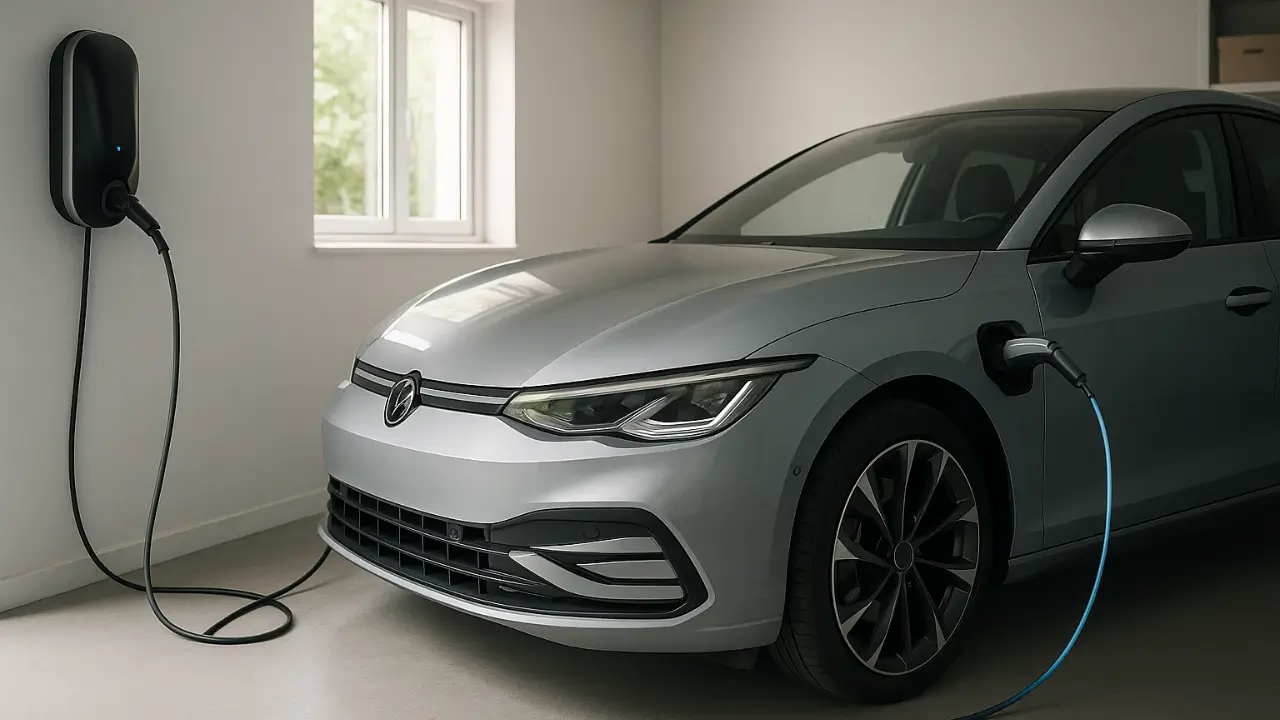Discover everything you need to know about EV charging at home, including setup, costs, charging speed, and safety tips for your electric car.
Introduction
With electric vehicles (EVs) growing in popularity, many homeowners are looking for easy, affordable options when it comes to installing an EV charger at home. On the plus side, charging at home provides the convenience of having a full battery every morning, the relief of not having to face public charging lines and cost savings over the long term. Here’s what you need to know about EV home charging.
Types of Home EV Chargers
At-home you can get one of two main types of EV chargers:
Level 1 Charger This uses a standard 120-volt household outlet and it usually comes with your EV. It has a charge rate of 3 to 5 miles an hour. Though adequate for short daily commutes, it is slow and may not fully refuel a vehicle overnight.
Level 2 Charger: This requires a 240-volt outlet (like what you’d use for a dryer). It provides 12–60 miles of range per hour depending on the power rating and your EV’s capacity. Most EV owners opt for Level 2 charging for faster, more efficient recharging.
Installation Requirements
To install a Level 2 charger you’ll need:
A 240-volt circuit: If your home doesn’t already have one near your parking area, an electrician will need to install it.
Circuit breaker capacity: Your home’s electrical panel will have to accommodate the additional load. If not, you may need an upgrade.
A licensed electrician: Installation should only be conducted by a professional electrician to ensure safety and code compliance.
Total installation cost, which depends on wiring panel upgrades and the charger, can run from $500 to $2,000.
- Audi GT50 Concept: A Loud Reminder of Why Car Enthusiasts Fell in Love With Audi
- Nearly 30% of UK Drivers Believe Car Tax Should Be Based on Mileage — Survey
- Why Planes and Boats Escaped the Luxury Tax But Cars Didn’t
- Australia’s Headlight Confusion: Authorities Warn Drivers After Viral $250 Headlight Rule Goes Wild Online
- 2025 Hyundai Venue Facelift Launched in India – Full Details, Variants, and Price
Smart Chargers and Features
Some Level 2 chargers have “smart” features. These features include:
Wi-Fi or app enable for scheduling and monitoring
Monitor energy consumption to control electricity expenses
Works with Solar or Home Energy Systems
Some utilities also offer rebates or incentives for smart chargers, particularly those that enable charging during off peak hours.
Charging Times
The charging time is a function of the charger and the size of your vehicle’s battery. Here are general estimates:
Level 1: 24-48 hours to fully charge
Level 2: four to 10 hours for a full charge
For the average driver, plugging in at home at night means a full tank of electricity in the morning.
Cost of Charging at Home
It’s typically less expensive to charge at home than at public stations. On average the cost is:
$0.10 to $0.20 per kWh if it varies based on your utility rate range.
Cost: $6 to $10 for most EVs for a full charge
Some power companies also make time-of-use (TOU) plans available, which let you charge at cheaper rates during off peak periods (typically the middle of the night or early in the morning).
Incentives and Tax Credits
Governments and utilities often provide EV charger purchase and installation rebates in many areas. You may also qualify for:
Federal tax incentives (i.e., 30% of installation cost, in the US)
State/local rebates where applicable.
Utility incentives for energy-efficient upgrades
Be sure to double check with your local energy provider or government website for the latest programs available.
